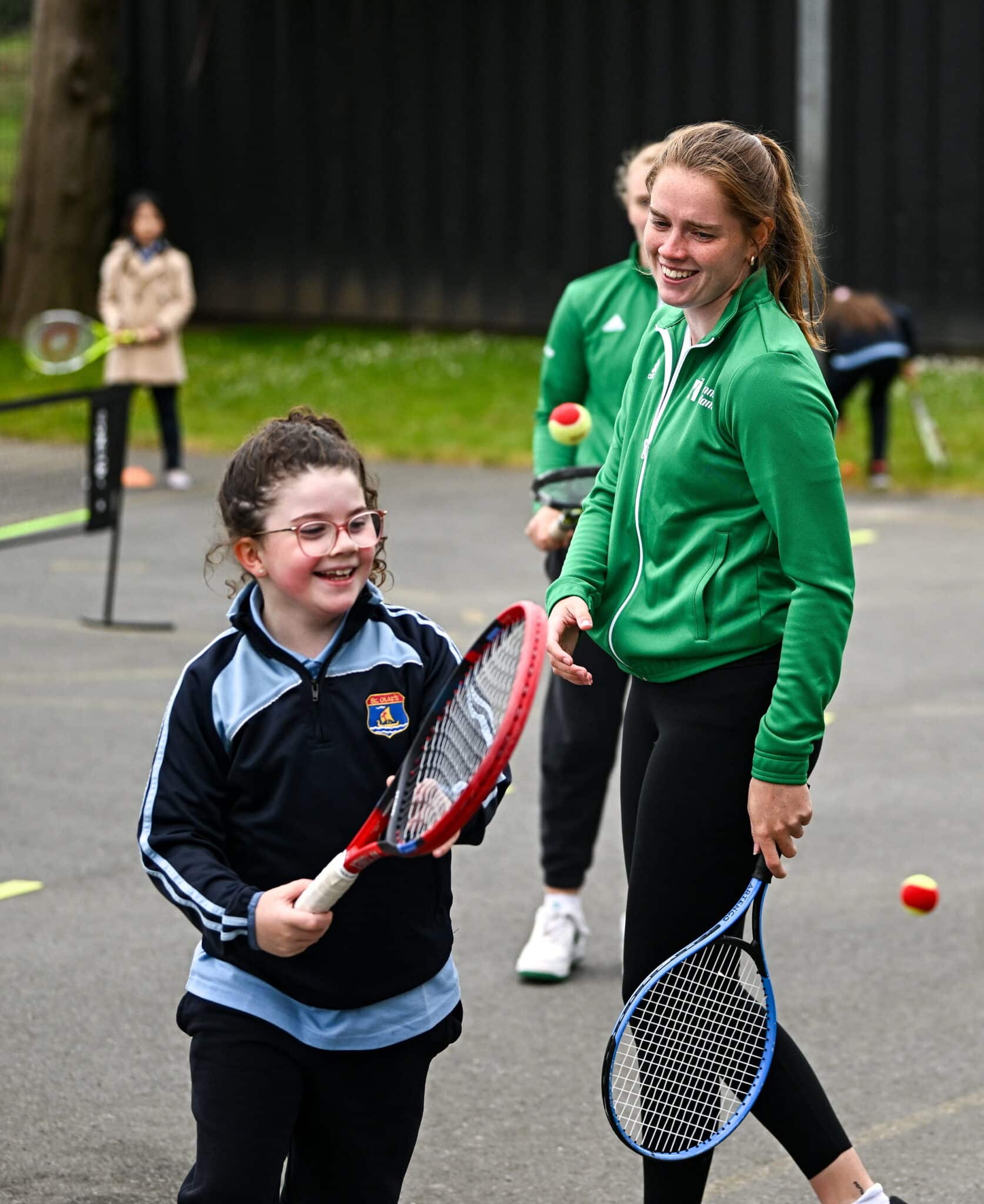[ad_1]
Tennis Ireland: Supporting Lifelong Health through Sport
Science clearly shows that the journey to becoming a tennis player develops a range of multi-level skills that can lead to success both on and off the court. But beyond athletic achievement, regular tennis play strengthens neural pathways that support both mental and physical health throughout life. The adaptability of childhood and adolescence provides an extraordinary opportunity to integrate preventative health practices and mindsets into daily routines. By fully engaging in the athlete’s journey—physical activity, sleep, nutrition, hydration, and a growth mindset—young players develop skills that can become as habitual as brushing their teeth.
Does Tennis Protect Health? How Does Competition Play a Role?
Tennis offers numerous health benefits, and parents of competitive players often have questions about how the sport influences their children. It’s important to remember that mental and physical health are interconnected—each affects the other, shaping overall well-being throughout life. As we explore common questions, keep in mind that fostering mental health positively impacts emotional, physical, and even brain health.
Here’s how we, as tennis parents, can support our children’s well-being across key areas:
Q: How does tennis contribute to my child’s emotional well-being?
A: The biochemistry of emotions is profoundly influenced by tennis, in the following ways:
- The joy of playing, when balanced with other sports and proper recovery, releases a combination of feel-good chemicals (dopamine, serotonin, adrenaline, and endorphins) that boost mood and well-being.
- Oxytocin, often called the “love hormone,” enhances the emotional benefits of connection through the friendships built on the court.
- Tennis offers a powerful emotional reset, allowing players to gain perspective, move forward, and manage stress.
Physical Health
Q: How does tennis compare with other sports in terms of injury risk?
A: Overuse injuries are common in tennis, but serious injuries are rare, and head injuries are almost unheard of.
- A diverse sports menu helps reduce injury risk by strengthening the entire body. Engaging in complementary sports that build all-around strength is key for top players.
- Recovery is just as important as practice and play—balance is essential to prevent burnout and injury.
- By participating in multiple sports, children develop physical literacy, which lays the foundation for lifelong health.
Brain Health
Q: Does tennis, as an open-skill sport (dynamic, unpredictable, and externally paced), offer advantages for brain development compared to closed-skill sports?
A: Absolutely! Tennis is one of the most complex and engaging sports for the mind and body. Players must manage their inner emotions while reacting to ever-changing situations on the court, which creates a thorough mental workout. Neuroscience tells us that the healthiest brains are those with strong communication between the areas focused on internal thought and external responses—skills that tennis helps to develop.
Lifelong Health
Q: Is tennis unique in supporting health throughout life compared to other sports?
A: Yes! The benefits of tennis are profound and lasting. According to the Copenhagen Heart Study from the Mayo Clinic, tennis players live an average of 9.7 years longer than non-exercisers, 10.1 years longer than gym-goers, and 3.5 years longer than players of the next best sport (which, interestingly, is also a racquet sport).
Intrinsic motivation to play tennis is bolstered by participation in multiple sports. This reduces stress, injuries, and burnout, leading to lower dropout rates. No matter the level, fun remains a central part of tennis, and joy is critical for long-term persistence and success.
Tennis isn’t just about winning trophies or scholarships; it’s about developing a personalised recipe for a healthy, happy, and productive life. By focusing on healthspan (the quality of life) as much as lifespan, tennis sets children up for success. Tennis offers much more than athletic achievement; it’s a gateway to lifelong health and well-being.
If you are looking for help with your mental health, here are some resources which may be of benefit.
[ad_2]



